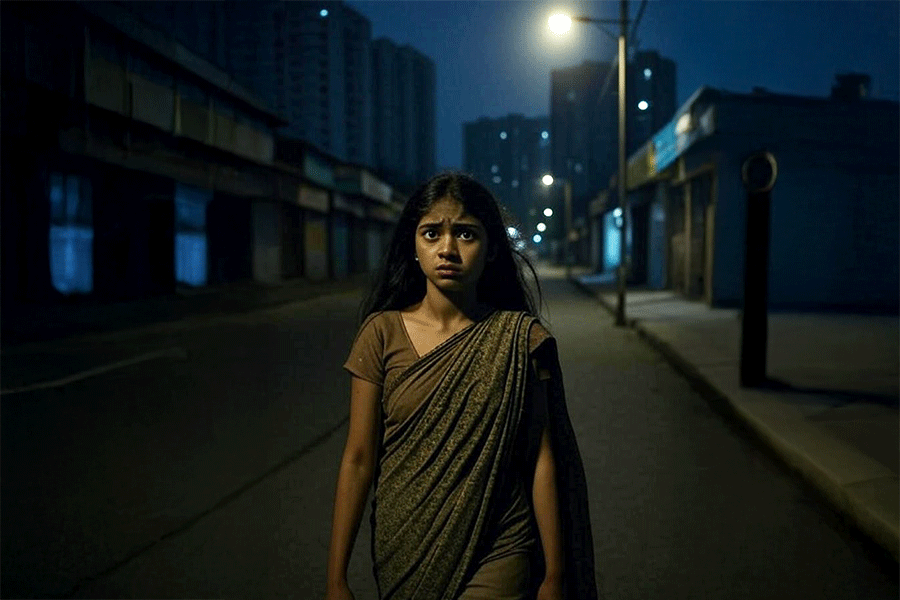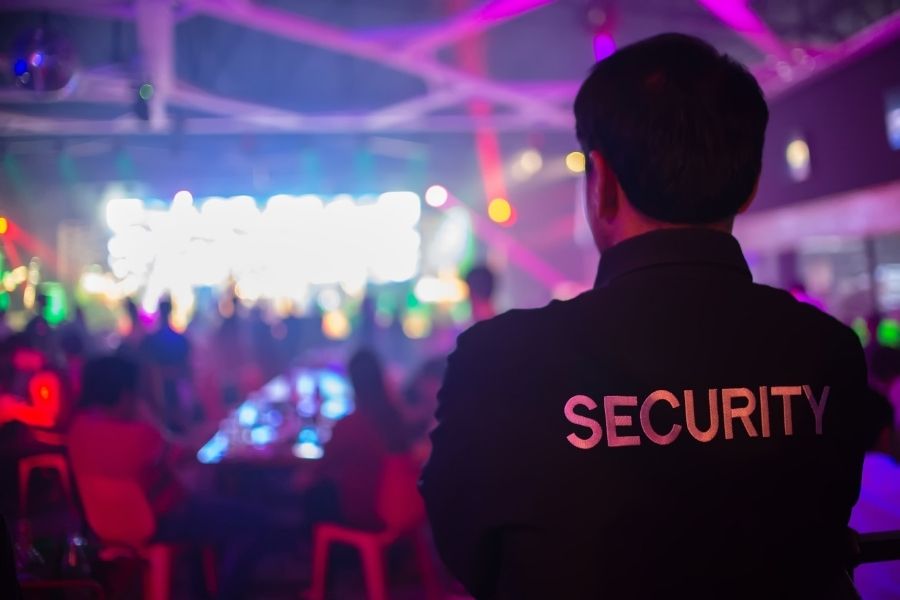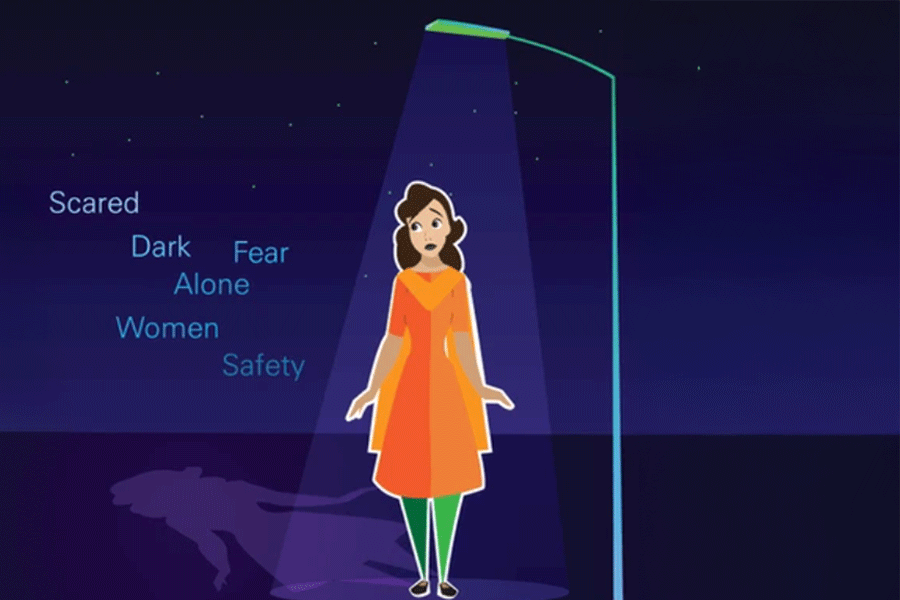Kohima, Visakhapatnam, Bhubaneswar, Aizawl, Gangtok, Itanagar and Mumbai have emerged as the safest cities in the country for women, while Patna, Jaipur, Faridabad, Delhi, Kolkata, Srinagar and Ranchi were ranked the lowest, according to the National Annual Report & Index on Women's Safety (NARI) 2025.
The report placed Kolkata in the bottom tier of Indian cities for women’s safety.
Against this backdrop, women across the city recount their experiences with public transport, family attitudes, and institutional responses.
‘Hints’ and silence in a crowded bus
For 29-year-old marketing professional Shreya Mukherjee, a routine bus ride to college turned into a trauma she still recalls with unease. Rushing to find a space in the women's section, she lost out on the last available seat and was forced to stand.
"After a while, I realised some man was pressing himself against my buttocks. At first, I thought he was just trying to adjust himself to stand properly. But no... I knew what he was trying to hint at," the Howrah resident said.
She confronted the man and raised her voice, but the response of the crowd was chilling in itself. "I yelled at him, told others what he did. But no one paid much attention. The crowded bus just had an eerie silence."
Changing routes for safety
For a 25-year-old IT professional from Behala, who commutes daily to Salt Lake Sector V, safety concerns have often outweighed convenience.
Janki Soni (name changed) recalled how she was forced to alter her evening shuttle timing after repeated harassment from a male co-passenger.
"He would always choose to sit beside me, even if the entire shuttle had empty seats," she said.
"What made it worse was the way he sat, he would lean inappropriately close, invading my space, making the ride unbearably uncomfortable. It wasn’t about convenience or time anymore; it became about my safety and peace of mind. And I know many women who have done the same, taken longer routes, waited for a different bus, or even paid extra for cabs, just to avoid such situations that should never happen in the first place.”
Everyday risks and small adjustments
Sneha Roy Mondal, 25, a MIS executive, who travels daily from Tollygunge to Burrabazar, says feeling unsafe has become part of her routine.
“In the metro, local trains, or even autos, there are always incidents of groping or men brushing against you on purpose. In crowded places like Burrabazar, some vendors invade your space unnecessarily, and the constant staring makes you uncomfortable. The worst is in packed trains or metros, when someone touches you from behind and you can’t even figure out who it is,” she said.
Sharing safety concerns has also been traumatic, a groping incident she confided in friends was later made fun of. “My parents, however, always reassure me without restricting my independence, and I really value that,” she adds.
Public transport a means of harassment
Aishwarya Jain, who works at an MNC on a night shift, said that every day she returns home from work in a cab, but remains on edge because of the city’s environment.
“The sort of things that has happened lately in Kolkata, be it rapes or sexual abuse or any sort of teasing, I don’t feel safe, no matter where I go, when I go,” she said. “While returning home at night, I see that there are roads in our city which don’t even have lights on, and it is really scary to commute every day in places like these.”
Public transport, once a lifeline for daily commuters, has become a site of daily harassment, according to Anita Banerjee, a student.
“Since I travel every day, I go through some sort of bad experience daily. From buses to metro, women face some sort of harassment every day, such as unwanted physical touch or men across all ages eyeing you up with their gaze.”
Lack of institutional response
Mandobi Bhattacharjee, a mental health worker, expressed anger over the lack of progress in women’s safety since the RG Kar rape and murder case in August last year.
“Kolkata, today, after the heinous incident, has not improved in terms of safety and the fact is that even after that crime, there has been no improvement or stopping it, and the city or the state must have witnessed hundreds more such cases. And this keeps reminding us that we are not safe,” she said.
“I come across women who doubt that even though they are going to work, if they will be able to return home safely. Such is the state of the city. And whenever someone wants to speak up against it all, they are being silenced. And it is done by abusing them mentally and physically. Because of this, we, the women of Kolkata, are in reality not safe, and we are really disappointed with the zero involvement of the state government in making this city a better place,” she added.
“It is very shameful that women's safety and security in the city and the state is in a downward spiral, and we don’t know how to fight it,” she said.
Not-so-friendly gaze
Riya Roy, a master’s student, said she feels unsafe every time she steps outside. “When we go out, no matter what we wear, whether it is a short dress, a salwar kameez or a sari, the not-so-friendly gaze of men is always on us. I experience it almost every day, and it feels very unsafe.”
“In a packed public bus, we are helpless as almost everyone touches us in an inappropriate manner. I question every day whether I will be able to reach back home safely or not. This is the situation in Kolkata and I don’t feel safe,” she said.
Sania Afreen, a student from Sri Shikshayatan College, said the city’s safety record has deteriorated in recent years.
“Kolkata is an unsafe city. It was not this way earlier, but it is the reality now. I give tuitions to kids and there are days when I reach home very late and it’s not possible for me to book a cab every day so I have to take public transport. When I wait at the bus stand, there are men who tease me, saying all sorts of uncomfortable things. People judge us on how we dress. Even women wearing burkhas are judged, so it definitely shows that it’s not about the clothing – it shows the mentality of the people,” she added.


